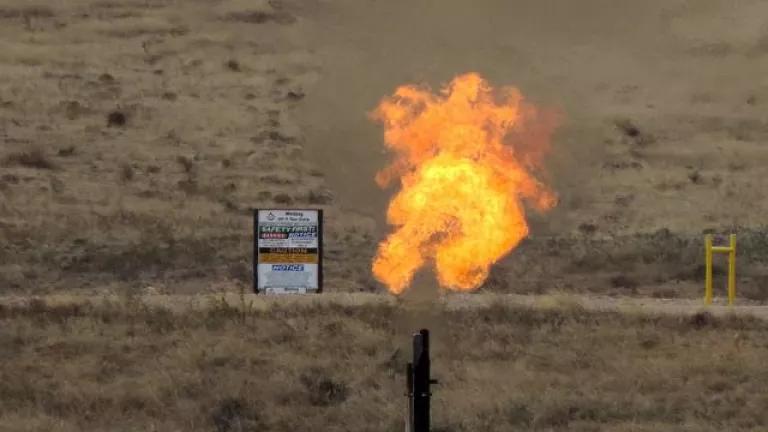
The methane waste rule—which targets one of the most potent greenhouse gases and requires oil and gas companies to capture leaked methane, update outdated equipment, and come up with plans to reduce waste—faced another obstacle as the Bureau of Land Management again moved to repeal the Obama-era policy. Inefficiency was so rampant that the wasted gas from 2009 to 2015 could've powered 6.2 million households for a year. The rule, if fully implemented, would’ve prevented 180,000 tons of methane emissions annually—the equivalent of taking nearly a million cars off the road. Trapping 80 times as much heat in the atmosphere as carbon in the near-term, methane was a key target of President Obama’s climate change initiatives.
Related Content
Skip carousel items


Zinke to Oil and Gas Industry: Let 'Er Rip
Expert BlogMeleah Geertsma
Interior Secretary Ryan Zinke has just proposed to eviscerate the Bureau of Land Management’s (“BLM”) standards adopted a little over a year ago to stop the rampant climate pollution and loss of taxpayer revenue from oil and gas operations on…

Zinke’s Latest Gift to Big Oil: Suspending Methane Waste Safeguards
Expert BlogNRDC
A coalition of groups, including NRDC, are suing the Trump administration for rolling back these important protections.
Zinke’s Illegal Suspension of Methane Rules Will Not Stand
Expert BlogMeleah Geertsma
Interior Secretary Ryan Zinke’s illegal suspension of rules to cut methane pollution from drilling operations on public lands is the latest example of the Trump administration’s cavalier disregard for vital public health and environmental safeguards.
Court Invalidates EPA Rollback of Methane Pollution Protections
Press Release
WASHINGTON – A federal court today struck down an Environmental Protection Agency attempt to suspend critical protections against leaks of methane and other dangerous air pollution from oil and gas operations. The 2-1 ruling by the D.C. Circuit Court of…

Methane Promises Are No Substitute for Rules
Expert BlogBriana Mordick
We welcome genuine efforts by industry to curb its methane and other air pollution, but this current effort falls far short of what’s needed and possible.